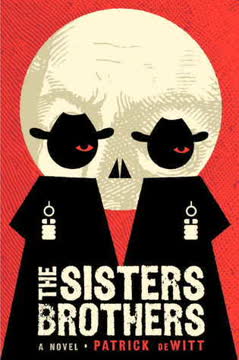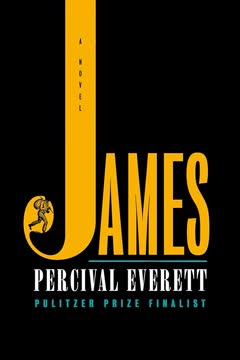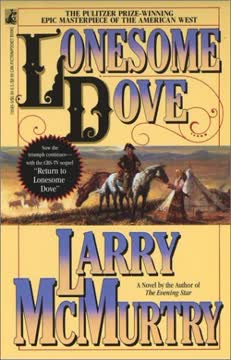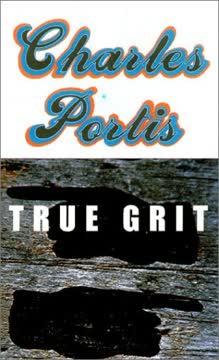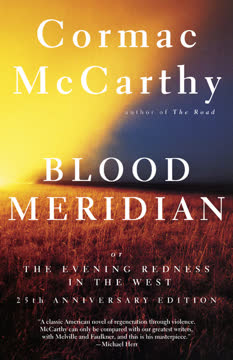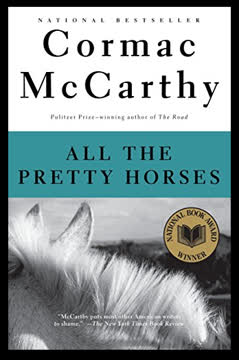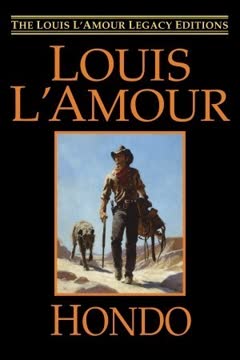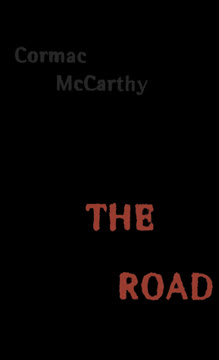Plot Summary
Brothers in Blood and Bond
The story opens with Eli and Charlie Sisters, infamous hired guns in 1850s Oregon, waiting for their next assignment from the shadowy Commodore. Their relationship is complex: Eli, the gentler, introspective brother, is often at odds with Charlie, the hard-drinking, quick-tempered lead man. Despite their differences, their bond is unbreakable, forged by a violent upbringing and a lifetime of shared hardship. The narrative voice is Eli's, whose sensitivity and longing for a different life contrast with Charlie's ruthless pragmatism. Their journey is as much about their relationship as it is about the job at hand.
The Commodore's Deadly Job
The Commodore, a powerful and feared figure, hires the Sisters brothers to track and kill Hermann Kermit Warm, a prospector in California. The job is shrouded in mystery; the brothers are given little information beyond Warm's description and the promise of a lead from the Commodore's scout, Henry Morris. The assignment is both a test of loyalty and a reflection of the brothers' place in a violent, lawless world. Eli is uneasy about the morality of their work, while Charlie is more focused on the practicalities and rewards.
Horses, Hardships, and Hauntings
The brothers set out for California, each with a new horse—Charlie's nimble and strong, Eli's slow and stubborn. Eli mourns his previous horse, lost in a fire, and is plagued by guilt and dreams. The journey is grueling, filled with physical discomfort, bad weather, and the constant threat of violence. Along the way, they encounter a weeping man, whose mysterious grief is never explained, and whose presence lingers as a symbol of the random suffering that marks their world.
Encounters on the Trail
The brothers' path is littered with encounters that test their character: a grieving stranger, a spider bite that nearly kills Eli, and a series of violent confrontations. They meet Reginald Watts, a failed dentist, who extracts Eli's infected teeth and introduces him to the wonders of the toothbrush—a small symbol of progress and self-care amid brutality. The brothers' interactions with others reveal their contrasting natures: Eli's empathy and reluctance to kill, Charlie's quickness to violence and self-interest.
Poison, Pain, and Recovery
After a spider bite and botched medical care, Eli endures fever, swelling, and pain, relying on Charlie's care and the dubious skills of frontier doctors. The ordeal deepens Eli's introspection and highlights the brothers' dependence on each other. Their journey is marked by small victories and ongoing misfortune, from cursed cabins to bear attacks. Through it all, Eli's longing for a gentler life grows, even as he is pulled deeper into violence.
Witch's Cabin and Curses
Seeking shelter, the brothers stay in a witch-like woman's cabin, where they are unsettled by her cryptic warnings and the sense of a curse. When they try to leave, they are forced to escape through a window to avoid a string of beads left as a possible hex. The episode is both comic and eerie, blending the supernatural with the harsh realities of frontier life. The brothers' luck seems to waver between fortune and doom, reinforcing the novel's theme of fate versus agency.
Violence, Remorse, and Reflection
The brothers' journey is punctuated by violence—Charlie kills a group of prospectors to free Eli from the cursed cabin, and the aftermath leaves both men uneasy. They scavenge from the dead but are haunted by the senselessness of it all. Eli's discomfort with their work grows, and he begins to question the path they are on. The brothers' banter and quarrels reveal deep wounds and a longing for something better, even as they are trapped by their reputations and the expectations of others.
Towns, Temptations, and Tensions
In towns along the way, the brothers experience fleeting pleasures—new clothes, hot baths, and brief connections with women. Eli becomes infatuated with a hotel maid, dreaming of love and a different future, while Charlie succumbs to drink and self-destruction. Their interactions with townsfolk, from shopkeepers to duelists, expose the absurdities and cruelties of frontier society. The brothers' relationship is strained by jealousy, secrets, and the ever-present shadow of the Commodore.
The Duel and the Woman
The brothers witness a duel that ends in pointless death, a microcosm of the violence that defines their world. Eli's hopes for romance are dashed when he learns the woman he admires is a prostitute, and that Charlie has already been with her. The revelation deepens Eli's sense of isolation and longing for connection. The brothers' bond is tested, but ultimately endures, as they continue their journey toward California and their fateful encounter with Warm.
Dreams of Change
Arriving in California, the brothers are swept up in the chaos and promise of the Gold Rush. They meet a series of desperate and eccentric characters, from failed prospectors to ruthless trappers and the enigmatic Mayfield, a local boss. The pursuit of wealth and the illusion of easy fortune drive men to madness and ruin. The brothers themselves are tempted by the possibility of a new life, but are repeatedly reminded of the cost of violence and betrayal.
California Gold and Greed
The brothers finally catch up with Henry Morris and Hermann Warm, discovering that Warm has invented a chemical formula that makes gold glow in riverbeds—a potential revolution for prospectors. Instead of killing Warm, the brothers join forces with him and Morris, forming an uneasy alliance to extract gold from the river. Their brief success is marred by greed, carelessness, and the toxic effects of the formula, which poisons and ultimately kills Morris and Warm. The gold is stolen by passing Indians, and the brothers are left with nothing but regret and scars.
Betrayal, Brotherhood, and Loss
The brothers' return journey is marked by further loss: Charlie's hand is amputated after being burned by the formula, their hidden gold is stolen, and they are robbed by prostitutes in a burned-out town. Their dreams of wealth and escape are shattered, and they are forced to confront the emptiness of their violent lives. Eli's desire for change becomes more urgent, and the brothers' relationship, though battered, is ultimately reaffirmed by shared suffering and forgiveness.
The End of the Road
The novel ends with the brothers returning home to their estranged mother, seeking rest and a new beginning. The cycle of violence is broken, at least for now, as Eli resolves to leave killing behind and pursue a quieter life. The story closes on a note of fragile hope, as the brothers find solace in family and the possibility of redemption, even as the scars of their past remain.
Characters
Eli Sisters
Eli is the narrator and emotional core of the novel, a large, sensitive man trapped in the role of a hired killer. He is haunted by guilt, loss, and a longing for love and normalcy. His relationship with Charlie is both codependent and fraught, shaped by childhood trauma and a shared history of violence. Eli's journey is one of self-discovery and moral awakening; he questions the meaning of their work, dreams of a different life, and ultimately seeks redemption. His compassion and introspection set him apart from the brutality around him, making him both an outsider and a reluctant participant in the world's cruelty.
Charlie Sisters
Charlie is the older brother, the "lead man" on their assignments, and the more traditionally masculine of the pair. He is quick to violence, fiercely loyal, and driven by pride and a need for control. Charlie's drinking and impulsiveness often endanger both brothers, but his bravado masks deep wounds and insecurities. He is shaped by a violent father and a lifetime of fighting, and his relationship with Eli is both protective and exploitative. Charlie's arc is one of gradual unraveling—he loses his hand, his fortune, and his sense of purpose, but ultimately finds a measure of peace in reconciliation with Eli.
The Commodore
The Commodore is the unseen hand behind the brothers' violence, a powerful and feared figure who embodies the ruthless logic of the frontier. He is a master of delegation and control, using men like the Sisters brothers to enforce his will and eliminate threats. The Commodore's motivations are opaque, driven by greed and a desire for dominance. He is both a symbol of the corrupting influence of power and a catalyst for the brothers' moral reckoning. His eventual death at Eli's hands marks the end of an era and the possibility of change.
Hermann Kermit Warm
Warm is the brothers' target, a prospector with a scientific mind and a dream of revolutionizing gold mining. He is solitary, stubborn, and driven by a sense of purpose that sets him apart from the greed and violence around him. Warm's invention—the gold-illuminating formula—represents both the promise and peril of progress. His partnership with Morris and eventual alliance with the brothers is marked by mutual suspicion, fleeting camaraderie, and tragic consequences. Warm's death is both a personal loss and a symbol of the futility of ambition in a corrupt world.
Henry Morris
Morris is the Commodore's scout, a dandyish, intelligent man who defects to join Warm in his quest for gold. He is torn between loyalty to his employer and admiration for Warm's vision. Morris's partnership with Warm is both practical and idealistic, but ultimately doomed by greed, carelessness, and the toxic effects of the formula. His death is a moment of pathos, highlighting the cost of betrayal and the fragility of human connection.
Tub
Tub is Eli's horse, slow, stubborn, and often the subject of complaint. Despite his shortcomings, Tub becomes a symbol of Eli's capacity for empathy and his resistance to the logic of utility and violence. The relationship between Eli and Tub mirrors the brothers' own dynamic—marked by frustration, care, and eventual loss. Tub's death is a turning point, signaling the end of innocence and the inevitability of change.
Mayfield
Mayfield is a minor kingpin in California, a man who has profited from the Gold Rush and built a small empire of vice and violence. He is both a mirror and a warning for Charlie, embodying the dangers of unchecked ambition and the emptiness of power. Mayfield's interactions with the brothers are marked by mutual manipulation, betrayal, and eventual downfall.
The Witch/Wise Woman
The old woman whose cabin the brothers visit is a figure of mystery and menace, representing the supernatural undercurrents of the frontier. Her warnings and possible curse haunt the brothers, serving as a reminder of the limits of reason and the power of fate. She is both a comic and unsettling presence, blurring the line between reality and myth.
The Hotel Woman
The unnamed hotel maid represents Eli's longing for connection and a different life. Their brief, awkward romance is marked by miscommunication, disappointment, and the harsh realities of survival. She is both a symbol of possibility and a reminder of the barriers that separate Eli from happiness.
The Weeping Man
The weeping man is a recurring figure whose grief is never explained. He embodies the randomness and persistence of pain in the world, haunting the brothers' journey and serving as a counterpoint to their own struggles.
Plot Devices
Dual Narrative of Violence and Vulnerability
The novel's structure alternates between scenes of violence and moments of reflection, using Eli's first-person narration to explore the psychological toll of their work. The brothers' banter, quarrels, and shared memories provide both comic relief and emotional depth, revealing the complexity of their bond. The use of recurring motifs—horses, dreams, curses, and the search for home—creates a sense of continuity and resonance.
Foreshadowing and Superstition
The story is laced with omens, curses, and premonitions, from the witch's beads to the recurring weeping man. These elements foreshadow the brothers' eventual downfall and underscore the theme of fate versus free will. The blending of the supernatural with the mundane reflects the uncertainty and chaos of the frontier.
The MacGuffin: The Gold Formula
The pursuit of Warm's gold-illuminating formula drives the plot, serving as both a literal and symbolic object of desire. The formula promises easy fortune but brings only suffering, poisoning those who use it and leading to betrayal, death, and loss. Its ultimate disappearance—stolen by Indians, lost in a fire—reinforces the futility of greed and the impermanence of success.
Cyclical Structure and Return Home
The novel's structure mirrors the classic hero's journey, with the brothers leaving home, facing trials, and returning changed. The ending, with the brothers seeking rest and reconciliation with their mother, suggests the possibility of redemption and the enduring power of family, even as the scars of the past remain.
Analysis
The Sisters Brothers reimagines the Western as a story of psychological depth and moral ambiguity, blending deadpan humor with moments of profound sadness. Through Eli's eyes, we see the cost of violence—not just in blood, but in the erosion of empathy, hope, and connection. The novel interrogates the myths of the frontier, exposing the emptiness of greed and the fragility of dreams. Its characters are both archetypes and individuals, shaped by trauma and longing for change. In the end, the book suggests that redemption is possible, but only through vulnerability, forgiveness, and the courage to break the cycle of violence. The lessons are timeless: that the pursuit of wealth and power is often self-defeating, that love and family are sources of strength and pain, and that even the most hardened souls can yearn for—and perhaps find—a gentler way of living.
Last updated:
FAQ
0. Synopsis & Basic Details
What is The Sisters Brothers about?
- A Western Subversion: The Sisters Brothers follows Eli and Charlie Sisters, two infamous hired killers in 1850s Oregon, as they journey to California during the Gold Rush to assassinate a prospector named Hermann Kermit Warm for their shadowy employer, the Commodore. The narrative, told from the perspective of the more introspective Eli, chronicles their arduous and often absurd journey, filled with encounters with eccentric characters, unexpected violence, and moments of profound self-reflection.
- Brotherhood's Complexities: At its core, the novel is an exploration of the complicated bond between Eli and Charlie, two brothers shaped by a violent past and a life of crime. Eli yearns for a gentler existence and questions the morality of their work, while Charlie, the more ruthless and impulsive "lead man," embraces their brutal profession, often to his own detriment.
- A Quest for Meaning: Beyond the assassination plot, the story becomes a quest for meaning and a different life, as the brothers confront the consequences of their actions, the allure and futility of the Gold Rush, and the possibility of redemption. Their mission to kill Warm takes an unexpected turn, leading them to a miraculous discovery and a series of events that irrevocably alter their lives.
Why should I read The Sisters Brothers?
- Unique Narrative Voice: Eli Sisters's deadpan, often anachronistic, and deeply introspective narration provides a fresh and darkly humorous perspective on the Western genre. His internal struggles and observations about the absurdities of frontier life offer a compelling contrast to the brutal events unfolding around him, making for a surprisingly empathetic read.
- Subversive Western Themes: The novel masterfully deconstructs traditional Western tropes, presenting a world where heroism is ambiguous, violence is often senseless, and the pursuit of fortune leads to ruin. It's a story that challenges expectations, blending elements of adventure, black comedy, and philosophical inquiry into the nature of good and evil.
- Rich Character Development: Beyond the thrilling plot, readers will be drawn to the complex psychological portraits of Eli and Charlie. Their evolving relationship, marked by both deep loyalty and profound conflict, is the emotional heart of the story, offering a nuanced look at family bonds under extreme pressure and the possibility of change.
What is the background of The Sisters Brothers?
- Gold Rush Setting: The story is set against the backdrop of the California Gold Rush in 1851, a period of immense social upheaval, lawlessness, and frenzied ambition. This historical context provides a fertile ground for the novel's themes of greed, opportunity, and the breakdown of traditional societal norms, as thousands flocked west in search of instant wealth.
- Frontier Lawlessness: The absence of established law and order on the American frontier is a crucial element, allowing characters like the Sisters brothers and the Commodore to operate with impunity. This environment highlights the moral vacuum in which the brothers exist, where personal codes and brute force often dictate justice, and survival depends on one's capacity for violence.
- Author's Distinct Style: Patrick deWitt's writing is characterized by its anachronistic language, dry wit, and a blend of the mundane with the grotesque. He subverts genre expectations by infusing the violent Western landscape with moments of unexpected tenderness, philosophical musings, and a unique brand of dark humor, creating a world that feels both familiar and strangely alien.
What are the most memorable quotes in The Sisters Brothers?
- "A great man is one who can pinpoint a vacuity in the material world and inject into this blank space an essence of himself!": Spoken by the Commodore in Chapter 60, this quote encapsulates his self-serving philosophy of power and creation from nothingness, ironically delivered just before Eli drowns him. It defines the ruthless ambition that drives many characters in The Sisters Brothers analysis.
- "I am not an efficient killer. I was not and had never been and would never be.": Eli's profound realization in Chapter 41 marks a pivotal moment in his character arc, signaling his internal break from his violent profession. This quote is central to understanding Eli Sisters' motivations and his longing for a different life.
- "It is the hardest thing in this world to find a friend.": The one-eyed proprietor of the Black Skull utters this in Chapter 39, a poignant reflection on loneliness and the difficulty of genuine connection in a world driven by self-interest and betrayal. This highlights a key theme in The Sisters Brothers about human relationships.
- "This moment, this one position in time, was the happiest I will ever be as long as I am living.": Eli's reflection in Chapter 53, after witnessing the glowing gold, captures a fleeting moment of transcendent joy and unity. It underscores the novel's exploration of happiness and its impermanence, a powerful emotional turning point.
What writing style, narrative choices, and literary techniques does Patrick deWitt use?
- Deadpan First-Person Narration: The novel is told entirely from Eli Sisters's perspective, characterized by his dry, understated, and often anachronistic voice. This narrative choice creates a unique blend of dark humor and profound introspection, allowing readers to experience the brutal world through the eyes of a sensitive, morally conflicted protagonist. Eli's detached observations of violence and his earnest attempts at civility are central to The Sisters Brothers's literary techniques.
- Subversion of Western Tropes: DeWitt deliberately plays with and subverts classic Western conventions. Instead of stoic heroes, we have bickering brothers; instead of clear-cut good versus evil, there's moral ambiguity. The journey itself, often a symbol of freedom, becomes a source of physical and psychological torment, challenging traditional notions of frontier adventure. This subversion is a key aspect of The Sisters Brothers analysis.
- Anachronistic Language and Detail: The dialogue and descriptions often feature a blend of period-appropriate and subtly anachronistic phrasing, contributing to the novel's unique tone. Details like Eli's obsession with his toothbrush or the Commodore's "Chinese folding screen" add a layer of quirky realism and highlight the characters' individual quirks against a harsh backdrop, enriching the themes in The Sisters Brothers.
1. Hidden Details & Subtle Connections
What are some minor details that add significant meaning?
- Eli's Toothbrush Obsession: Eli's consistent use of the toothbrush and powder, introduced by the eccentric dentist Watts (Chapter 6), is a subtle but powerful symbol of his yearning for cleanliness, order, and self-care amidst the filth and chaos of his violent life. It represents his internal struggle for civility and a desire to distance himself from the brutal aspects of his profession, a key element in Eli Sisters's character development.
- The Commodore's Head Wound: Morris's diary (Chapter 37) reveals that Warm struck the Commodore in the head with a paperweight, causing the injury the brothers observed earlier. This seemingly minor detail retroactively recontextualizes the Commodore's initial instructions and his vendetta against Warm, exposing his true, petty motivations and confirming Warm's story, adding depth to The Sisters Brothers's plot analysis.
- The Weeping Man's Recurrence: The weeping man Eli encounters early in the journey (Chapter 3) reappears near the end (Chapter 58), still in a state of inconsolable grief. His unexplained, persistent sorrow serves as a recurring motif of universal, inescapable suffering, foreshadowing the brothers' own eventual losses and Eli's growing despair, a subtle piece of foreshadowing in The Sisters Brothers.
What are some subtle foreshadowing and callbacks?
- The Witch's "Mostly Gone" Prophecy: The witch-like woman in Chapter 7 tells the brothers, "In the morning, I will be mostly gone." This cryptic statement subtly foreshadows the partial, rather than complete, disappearance of various elements throughout the story—the gold is "mostly" stolen, Charlie's hand is "mostly" gone, and the brothers' old lives are "mostly" left behind, hinting at the lingering consequences of their actions.
- Warm's Father's Destructive Inventions: Warm's recounting of his father's diabolical inventions, like "The Conclusive Blanket" and "The Triangle of Prosperity" gun (Chapter 51), subtly foreshadows the destructive potential of Warm's own gold-finding formula. It highlights a generational pattern of genius applied to dangerous ends, connecting Warm's scientific ambition to a legacy of harm, a deeper layer of Hermann Warm's symbolism.
- Charlie's "I am like no one" Statement: Early in the novel (Chapter 4), Charlie declares, "I am like no one." This statement, initially a display of his self-assuredness, subtly foreshadows his eventual isolation and the profound personal transformation he undergoes after losing his hand. By the end, he is indeed "like no one" he was before, stripped of his primary tool for violence and forced to redefine himself, a crucial aspect of Charlie Sisters's character arc.
What are some unexpected character connections?
- Mayfield as Charlie's Shadow Self: Mayfield, the corrupt local boss in California, serves as an unexpected mirror for Charlie. Both are ambitious, ruthless, and surrounded by sycophants and whores. Mayfield embodies a more established, decadent version of the violent life Charlie leads, offering a glimpse into a potential, more corrupted future for Charlie if he continued on his path. This connection deepens the themes in The Sisters Brothers about power and its corrupting influence.
- The Hotel Woman's Brother Pete and Charlie's Hand: The hotel woman mentions her brother Pete was "kicked in the chest by a mule" (Chapter 17), leaving a hoof-shaped mark. This seemingly throwaway detail unexpectedly parallels Charlie's later, more severe injury—the loss of his hand due to the formula. Both incidents highlight the fragility of the body and the random, often brutal, nature of frontier life, creating a subtle thematic echo of shared human vulnerability.
- The Stable Hand's Unexpected Kindness: The stable hand who removes Tub's eye (Chapter 40) initially appears gruff and mercenary. However, his offer of a cigarette, his shared work with Eli, and his genuine concern for Tub's recovery reveal an unexpected layer of kindness and professionalism. This interaction provides a brief moment of human connection in a harsh world, contrasting with the brothers' usual violent encounters.
Who are the most significant supporting characters?
- Reginald Watts, the Failed Dentist: Watts (Chapter 6) is more than just a plot device for Eli's toothache. His self-deprecating humor about his "luckless" life and numerous failures ("I've failed at straight business, I've failed at criminal enterprise, I've failed at love, I've failed at friendship") makes him a poignant figure. He represents the pervasive theme of failed ambition and the struggle for survival on the frontier, yet he also introduces Eli to the toothbrush, a small but significant symbol of self-care and progress.
- The Boy from the Wagons: This unnamed boy (Chapters 23-26) embodies the naive hope and brutal realities of the Gold Rush. His tragic story of abandonment, his unwavering belief in "gold tumbling down those California rivers like hop-frogs," and his attachment to his sickly horse, Lucky Paul, serve as a stark contrast to the brothers' cynicism. He highlights the innocence lost and the harsh lessons learned by those drawn to California's promise, deepening the themes in The Sisters Brothers about greed and disillusionment.
- The Hotel Woman (Bookkeeper): Eli's brief, unfulfilled connection with the hotel bookkeeper (Chapters 16-17, 29-31) is crucial for understanding Eli Sisters's motivations. She represents his longing for domesticity, love, and a "slower life." Her intelligence, quiet strength, and eventual tragic fate (implied by the returned money) underscore the difficulty of escaping the violence of their world and the fragility of such dreams.
2. Psychological, Emotional, & Relational Analysis
What are some unspoken motivations of the characters?
- Eli's Quest for Moral Absolution: Beyond simply wanting a "slower life," Eli is driven by an unspoken desire for moral absolution. His constant questioning of their work, his empathy for victims, and his attempts at kindness (e.g., with Tub, the hotel woman) suggest a deep-seated need to atone for his past and find a path that aligns with his conscience. This is a core aspect of Eli Sisters's psychological complexity.
- Charlie's Fear of Inadequacy: Charlie's aggressive pursuit of being the "lead man," his heavy drinking, and his need for control (e.g., over Eli, over situations) are unspoken manifestations of a profound fear of inadequacy. His childhood trauma with his violent father (Chapter 35) likely instilled a need to prove his strength and avoid vulnerability, leading him to overcompensate with ruthlessness, a key insight into Charlie Sisters's motivations.
- Warm's Desire for Recognition and Legacy: While Warm seeks wealth, his deeper, unspoken motivation is intellectual validation and a lasting legacy. His detailed scientific calculations and his passionate explanations of the formula (Chapter 37) suggest he craves recognition for his genius, not just the gold itself. This ambition, born from a life of being misunderstood and dismissed, ultimately contributes to his downfall.
What psychological complexities do the characters exhibit?
- Eli's Duality and "Second Self": Eli grapples with a profound psychological duality, describing a "second self" that emerges during violence (Chapter 48): "I felt at once both lust and disgrace and wondered, Why do I relish this reversal to animal?" This internal conflict between his gentle, introspective nature and his capacity for brutal violence is a central psychological complexity in The Sisters Brothers, highlighting the dehumanizing effects of his profession.
- Charlie's Self-Destructive Coping Mechanisms: Charlie's heavy drinking and impulsive violence are not merely character flaws but complex coping mechanisms for a lifetime of trauma and the moral emptiness of his work. His "brandy-sickness" and subsequent vulnerability (Chapter 15) reveal a man deeply affected by his choices, using alcohol to numb the psychological toll, a critical part of Charlie Sisters's character analysis.
- Morris's Idealism vs. Pragmatic Fear: Henry Morris exhibits a complex shift from the Commodore's pragmatic scout to Warm's idealistic partner, driven by the promise of scientific revolution (Chapter 37). However, his terror when confronted by the Sisters brothers and his quick suggestion to "shoot them" (Chapter 46) reveal that his idealism is fragile, easily overridden by primal fear and the harsh realities of survival, showcasing the emotional analysis of Henry Morris.
What are the major emotional turning points?
- Eli's Disillusionment with the Hotel Woman: Learning that Charlie had been with the hotel woman (Chapter 24) shatters Eli's romantic ideal and his nascent hopes for a different life. This emotional turning point forces him to confront the harsh realities of his world and the casual cruelty of his brother, deepening his resolve to leave their profession. "It must not have been that I loved the bookkeeper, but that I loved the idea of her loving me, and the idea of not being alone."
- Charlie's Hand Injury and Amputation: The burning of Charlie's hand by the formula and its subsequent amputation (Chapter 59) is a profound emotional and physical turning point. It strips him of his primary tool for violence, forcing him to confront his vulnerability and the irreversible consequences of his actions. This loss initiates a significant shift in his personality, leading to a more subdued and reflective demeanor, central to Charlie Sisters's character arc.
- The Shared Experience of the Glowing Gold: The moment the gold glows in the river (Chapter 52-53) is a transcendent emotional peak for all four men, particularly Eli. He describes it as "the happiest I will ever be as long as I am living," a rare moment of pure joy and wonder. This shared, almost spiritual experience, immediately followed by the formula's toxic effects and Morris's
Review Summary
The Sisters Brothers is a darkly comedic Western novel that follows two assassin brothers on a mission in 1850s California. Readers praise the book's unique blend of humor, violence, and philosophical musings. Many find the characters compelling, particularly the narrator Eli Sisters. The novel's unconventional take on the Western genre, witty dialogue, and exploration of morality are frequently highlighted. While some readers find certain scenes disturbing, most appreciate the book's originality and engaging storytelling. Overall, it receives positive reviews for its quirky charm and thought-provoking narrative.
Similar Books
Download PDF
Download EPUB
.epub digital book format is ideal for reading ebooks on phones, tablets, and e-readers.
